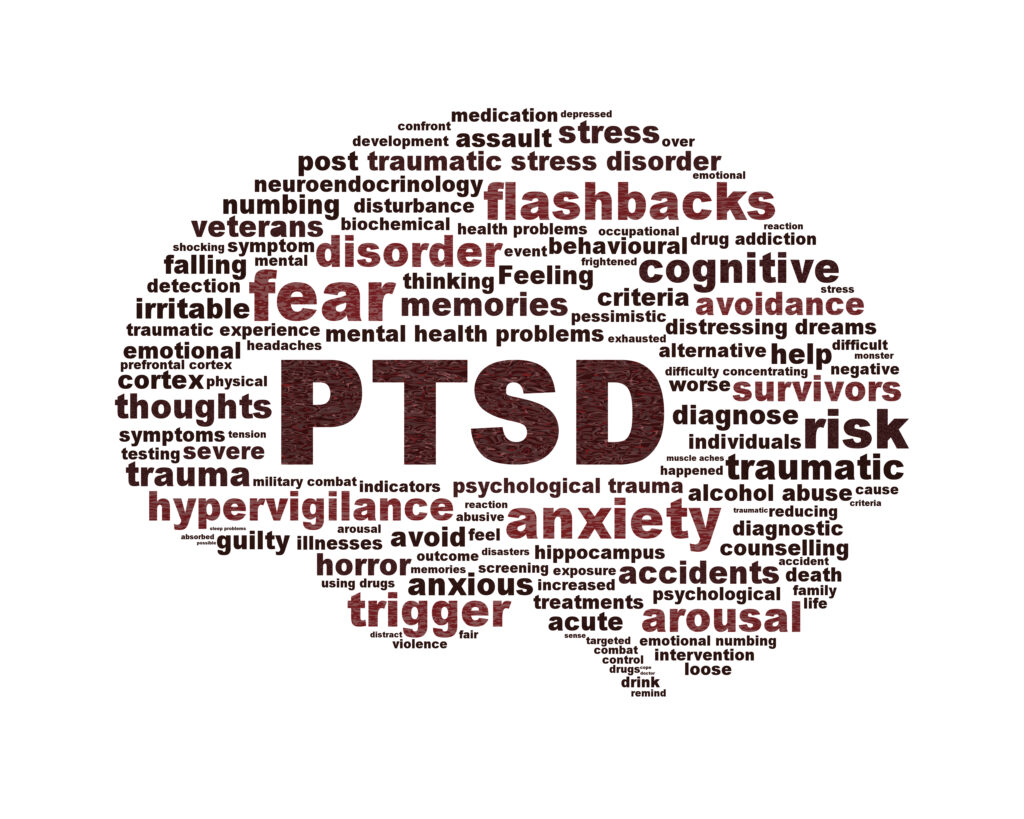Being involved in an accident can be a truly traumatizing experience, even if you are lucky enough to walk away without any major bodily injuries. While a bone fracture or a burn may be easy to diagnose and treat after a crash, some mental health problems may be harder to identify and deal with. If you were recently involved in an accident and think you might be suffering from mental health problems as a result, keep reading to learn more about what PTSD is and how it can affect you after an accident.
What Is PTSD?
Post-traumatic stress disorder (PTSD) is an anxiety disorder that develops after a tragic event, like a car accident, construction accident, or truck accident. The victim often re-experiences the traumatic event through recurring dreams, intrusive thoughts, and an overwhelming amount of anxiety. This often prevents victims from moving on from the traumatic experience and causes them to stay stuck in a state of anxiety.
Victims of PTSD may experience trauma so severe that it hinders their ability to engage in activities that did not use to be problematic. For example, a victim of an aviation accident may be unable to take a flight again after suffering from PTSD.
Can You Get PTSD From Accidents?
You can get PTSD from accidents, especially from severe ones. According to a study from Professional Psychology, being involved in a motor vehicle accident can significantly increase an individual’s likelihood of suffering from PTSD. The study found that 7.4% of the population suffers from PTSD at some point in their life and motor vehicle accidents are the top cause of PTSD.
What Are the Symptoms of PTSD From an Accident?
Not all accident victims experience PTSD, but many of them do. If you think you might be experiencing PTSD after an accident, you should consider whether you’re suffering from any of the following symptoms:
- Intrusive thoughts. One of the clearest signs of PTSD is having recurring thoughts about the traumatic event. These can fill you with anxiety as you are forced to relive the accident.
- Avoidant behavior. Actively seeking to avoid potential triggers is a clear sign that you may be suffering from PTSD. For example, if you were involved in a bus accident, you might try to avoid taking the bus at all costs if you have PTSD.
- Flashbacks of the accident. You may experience a full flashback of the accident if you suffer from a severe case of PTSD. A flashback involves a multisensory experience that can make you feel as if you are living the accident again. It can trigger your sense of smell, touch, and even taste. Flashbacks are often triggered by outside stimuli, like a smell or sensation.
- Anger. Irritability and anger are common symptoms of PTSD. Suffering from a catastrophic injury or simply being involved in an accident can make you feel helpless, which can trigger anger.
- Anxiety and depression. PTSD is closely related to other mental health issues like anxiety and depression. If you were involved in a car accident, these may be aggravated when you get in a car.
- Physical reactions. You may experience physical reactions when suffering from a PTSD episode, like trembling, nausea, sickness, and more.
How Can You Recover From PTSD From an Accident?
Fortunately, most cases of PTSD can be adequately treated to completely resolve or significantly manage the symptoms. Here are some things you can do to recover from PTSD:
- Seek cognitive processing therapy. As an anxiety disorder, PTSD will heighten your anxiety beyond reasonable or manageable levels. Cognitive processing therapy can help you identify your intrusive thoughts and emotions and reshape how you see the accident.
- Seek prolonged exposure therapy. This type of therapy seeks to help you deal with your PTSD head-on. The therapist will expose you to triggers of your PTSD in a controlled way to bring up the trauma and help you deal with it in healthy ways.
- Take medication. If you’re suffering from severe PTSD, then a licensed physician may be able to prescribe medication to help manage the symptoms.
- Practice meditation. Some studies have found that practicing meditation can help reduce the severity of PTSD symptoms by reducing stress, improving mood, and reducing the frequency of intrusive thoughts.
What Triggers PTSD After an Accident?
The triggers for PTSD after an accident depend heavily on the individual’s experience. Specific stimuli like smells, tastes, sounds, and feelings can trigger a PTSD episode. For example, if you were involved in an accident with fire, then the smell of smoke may trigger PTSD. In severe cases, seeing a car may be enough of a trigger to set off feelings of anxiety.
Can You Recover Compensation for PTSD From an Accident?
If you were injured in an accident due to the negligence of another party, then you deserve to be compensated for your injuries. Although physical injuries like broken bones or sprains may be the first thing to come to mind, you can also recover compensation for mental health problems like PTSD.
In order to recover compensation for PTSD, you must first be diagnosed by a licensed physician and have the condition be directly attributable to your accident. Once you’ve obtained your diagnosis, you can work with a personal injury lawyer to recover compensation for your damages.
What Damages Can I Recover From PTSD?
If you were injured in an accident and suffer from PTSD because of it, then you deserve to be compensated for all the damages incurred. This involves all economic and non-economic damages that may result from the PTSD diagnosis. Some of the most common damages available to PTSD victims include:
- Medical treatment
- Therapy
- Medication
- Emotional distress
- Loss of enjoyment of life
- Lost wages
Ultimately, the total number of damages and compensation amount available in your case will depend on the specific circumstances of your accident. The best way to ensure that you are properly compensated is to work with a personal injury lawyer with experience handling accident cases resulting in PTSD.
SOURCES:









